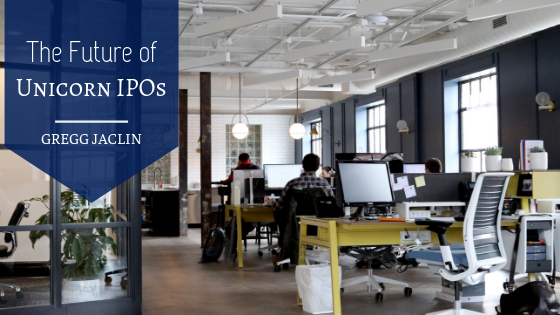In recent decades, tech startups have begun to flood the market. Those that are valued at more than one billion dollars and funded primarily through venture capital are considered unicorns; once considered rare, these valuable companies are becoming more common, and it’s believed that many of these businesses are planning to go public in the next year or so. After remaining private for a longer period than what is normal, these unicorn IPOs could stand to disrupt the market and the future of startups.
The timing of a unicorn’s decision to go public can greatly influence the price and desirability of its shares. The valuation of companies like Uber, Airbnb, and Lyft is incredibly high, and if they were all to go public in the same year, the result of this influx of available shares could shock the market and cause volatility. Some investment professionals believe that unicorn startups should have considered going public when the timing seemed acceptable rather than waiting for the timing to be perfect, as their delay may cause trouble when it comes to securing investors now.
With the looming threat of recession, unicorn startups have been compelled to push their initial public offering dates up. For some time, these companies were able to exist on the funding of private investors, but that unsustainable model cannot continue forever. If the timing of their decision to go public is off, they may have to do so at a lower valuation, resulting in pay cuts to employees and existing investors. With so many high-valued startups planning to go public by the end of this year due to factors such as an uncertain market, a trade war, and ebbing investor appetites, it is difficult to predict how well such IPOs will fare.
It is theorized that when this generation of unicorn startups goes public, the era of unicorns will be over. Having ridden the wave of rapidly advancing technologies like smartphones and on-demand services, these unicorns will likely not be replicated. While advancements in technology are likely, it is doubtful that there will be such revolutionary developments that led to the influx of startups that capitalized on things like apps and automated programs like Siri and Alexa.
As the markets continue to shift, the status of unicorn startups seems uncertain. The belief that unicorns should go public sooner rather than later in order to retain control of their situation in a fluctuating economy remains prevalent, but whether these companies will follow this advice or attempt to wait for the ideal opportunity remains to be seen.

